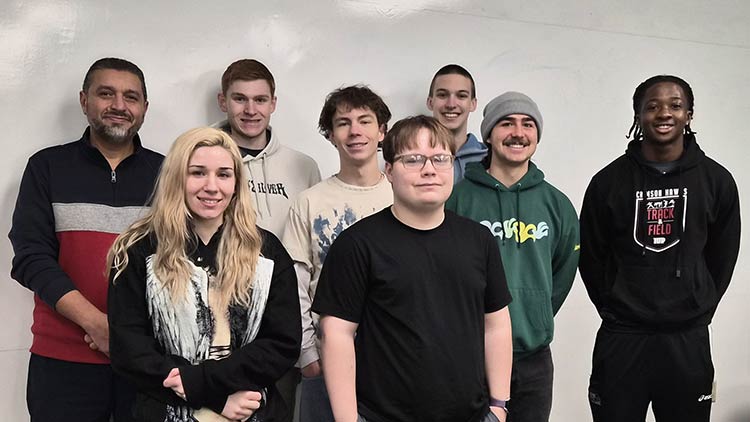Prashanth Bharadwaj Selected as Dean for IUP Eberly College of Business
Prashanth Bharadwaj, an experienced faculty member and administrator at Indiana University of Pennsylvania, has been chosen for the position of...

Prashanth Bharadwaj, an experienced faculty member and administrator at Indiana University of Pennsylvania, has been chosen for the position of...

Experience the excitement of IUP Spring Sports 2026 through our latest photo gallery. See the Crimson Hawks in action across baseball, tennis, and...

Natalie Holt, a student in Indiana University of Pennsylvania’s Composition and Applied Linguistics doctoral program, has been selected for a...

IUP’s Cejka Planetarium in John J. and Char Kopchick Hall will host a program about the next total lunar eclipse on February 24, “Blood...

To help you make the most of your time on campus, we’ve rounded up 50 must-do experiences to check off before graduation.

Students in Indiana University of Pennsylvania’s Cybersecurity Club took third place in a regional “Hackathon” competition...

Indiana University of Pennsylvania’s Dessy-Roffman Myth Collaborative will offer a spring lecture series starting February 18, all free and...

Indiana University of Pennsylvania professor of anthropology Abigail Adams presented a program on medical anthropology, disease theory systems, and...

Three graduate programs at Indiana University of Pennsylvania—criminology, nursing, and education—have been selected by U.S. News &...

Indiana University of Pennsylvania students have a unique opportunity to create innovative and multi-disciplinary projects addressing real-world...

Indiana University of Pennsylvania has received a $950,000 Occupational Safety and Health Administration Training Grant from the US Department of...

On January 30, Indiana University of Pennsylvania and Mountains Health formalized the establishment of a collaboration designed to advance the...

Bill Chadwick’s passion for anthropology began with a childhood fascination with archaeology and evolved through hands-on fieldwork and...

Due to inclement weather, all in-person classes and events at all IUP campuses and sites are canceled for Monday, January 26.

Kopchick Hall’s “Science on Display”—featuring skeletons of prehistoric animals, the Charles Darwin Collection, a flight...

Curt Cignetti, IUP’s head football coach from 2011 to 2016, led the Indiana Hoosiers to the 2026 College Football Playoff National...

Undergraduate students receive recognition on the Dean’s List for each fall, spring, or summer term(s) in which they earn at least a 3.25 GPA...

As director of Fraternity and Sorority Life at IUP, Betsy Sarneso guides students in 25 Greek organizations, building leadership, inclusivity, and...

Indiana University of Pennsylvania has received $2,295,315 from the United States Department of Education to create a Center for Dialogue and Civic...


Monday night’s College Football Playoffs championship game, between the Indiana Hoosiers and the Miami Hurricanes, will feature some men who...

Founding Associate Dean of Clinical Affairs and Graduate Medical Education Ryan Smith, a member of Indiana University of Pennsylvania’s...

Cynthia Vallina, a 1982 political science graduate of Indiana University of Pennsylvania, has gifted $100,000 to support students interested in...

Following a national search, Indiana University of Pennsylvania President Michael Driscoll has selected Peter Holden, an administrator with...

Belinda Nuth Sloboda, assistant professor of interior design, brings decades of experience—from residential design to creating spaces for...